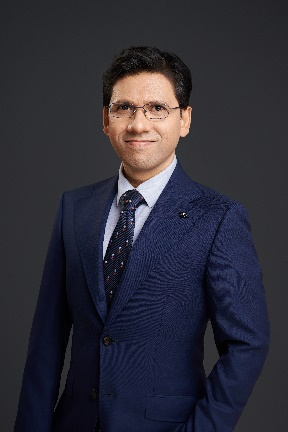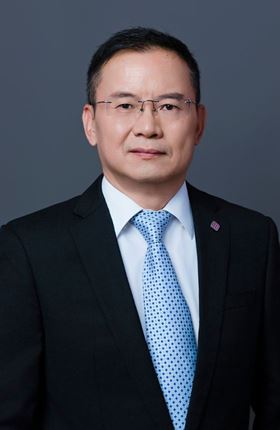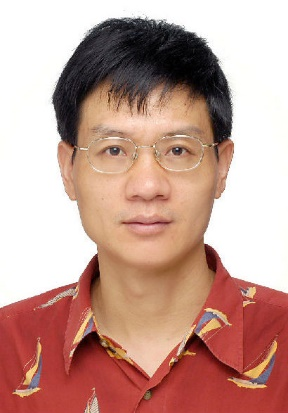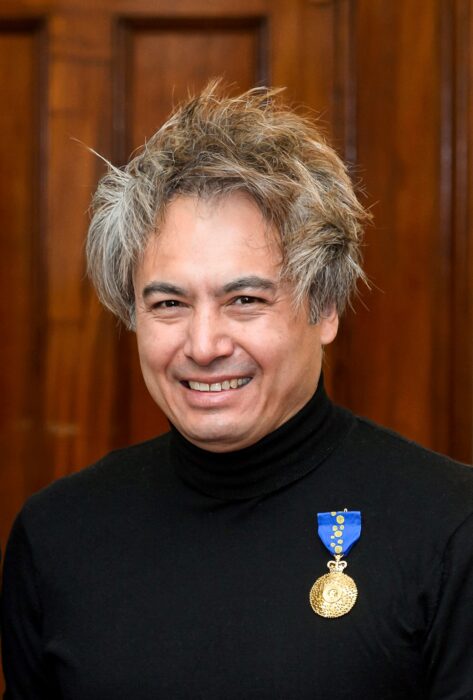
| Prof. LI QingChair Professor of Data Science and Head Director ofFIEEE; FIET/IEE; DMCCF Brief Introduction: Qing Li is currently a Chair Professor (Data Science) and the Head of the Department of Computing, the Hong Kong Polytechnic University. Formerly, he was the founding Director of the Multimedia software Engineering Research Centre (MERC), and a Professor at City University of Hong Kong where he worked in the Department of Computer Science from 1998 to 2018. Prior to these, he has also taught at the Hong Kong University of Science and Technology and the Australian National University (Canberra, Australia). Prof. Li served as a consultant to Microsoft Research Asia (Beijing, China), Motorola Global Computing and Telecommunications Division (Tianjin Regional Operations Center), and the Division of Information Technology, Commonwealth Scientific and Industrial Research Organization (CSIRO) in Australia. He has been an Adjunct Professor of the University of Science and Technology of China (USTC) and the Wuhan University, and a Guest Professor of the Hunan University (Changsha, China) where he got his BEng. degree from the Department of Computer Science in 1982. He is also a Guest Professor (Software Technology) of the Zhejiang University (Hangzhou, China) -- the leading university of the Zhejiang province where he was born. |
Prof. Xinguo YuCentral China Normal University, China Brief Introduction: Dr. Yu Xinguo is the dean of CCNU Wollongong Joint Institute and a professor of National Engineering Research Center for E-Learning at Central China Normal University, Wuhan, China. He is a senior member of both IEEE and ACM, and an adjunct professor of University of Wollongong, Australia. He is a vice director of Smart Educational Technology Branch Society under Automation Society in China, and the chair of Hubei Society of Artificial Intelligence in Research and Education. He received B.Sc. degree in Mathematics from Wuhan University of Technology, M. Eng degree from Huazhong University of Science and Technology, another M. Eng. degree from Nanyang Technological University, Singapore and Ph.D. degree in Computer Science from National University of Singapore. His current research mainly focuses on intelligent educational technology, educational robotics, multimedia analysis, computer vision, and machine learning. He has published over 100 research papers and his research papers have been widely cited by experts at home and abroad. He is an Associate Editor of International Journal of Digital Crime and Forensics, Guest Editor of several SCI journals, currently a guest editor of special issue: Humanized Computing and Reasoning in Teaching and Learning (https://www.techscience.com/CMES/special_detail/hcrtl). He was general chairs or program chairs for more than 10 international conferences. In late 2021 and 2022, he is general chair of International Conference International Conference on Teaching, Assessment, and Learning for Engineering, International Conference on Artificial Intelligence in Education Technology, and International Conference on Management Engineering, Software Engineering and Service Sciences. |
|
| Prof. Adrian David Cheok Nanjing University of Information Science and Technology, China Brief Introduction: Adrian David Cheok AM FIET FIEAust FRSA is Full Professor at Nanjing University of Information Science and Technology, Director of the Imagineering Institute, Malaysia, Visiting Professor at Raffles University, Malaysia, Visiting Professor at University of Novi Sad-Serbia, on Technical faculty “Mihailo Pupin”, Serbia, Faculty of Ducere Business School, and CEO of Nikola Tesla Technologies Corporation. In 2024, Professor Adrian David Cheok was honored with induction as a Full Member into Sigma Xi USA, The Scientific Research Honor Society, a recognition that not only signifies his dedication to scientific excellence but also aligns his contributions with those of groundbreaking researchers. Sigma Xi is a beacon of distinction within the global scientific community, boasting over 200 Nobel Laureates among its members, including luminaries such as Albert Einstein. This prestigious society is renowned for its commitment to the advancement of science and engineering and includes among its distinguished members other eminent personalities like Linus Pauling and Guglielmo Marconi, whose pioneering work has indelibly shaped the landscape of modern science and innovation. Professor Cheok’s association with Sigma Xi marks a pinnacle in his career, affirming his commitment to the ethos of rigorous and impactful scientific inquiry.
|
Assoc. Prof. A.Y.M. Atiquil IslamEast China Normal University, China Brief Introduction: Dr. A.Y.M. Atiquil Islam is an Associate Professor at the Department of Education Information Technology of the East China Normal University. He is also a Guest Professor at the School of Teacher Education of Jiangsu University. He obtained a multidimensional PhD degree by combining two faculties, namely, Education and Computer Science & Information Technology at the Institute of Graduate Studies, University of Malaya. Throughout his academic life, various scholarships he has been awarded certainly have been the most significant instigators of his achievements. He received the Graduation on Time (GOT 2015) Award from the University of Malaya and honorarium for finishing his PhD in less than three years. To integrate innovative ideas logically, Dr. Islam has proposed two types of approaches: the theoretical approach and the methodological approach. The theoretical approach is to develop the theory or model where the research ideas will be logically integrated within a framework. The methodological approach is to validate the theory or model to confirm whether the ideas have been appropriately and logically incorporated within a structure which can provide expected outcomes. Applying theoretical and methodological approaches, in his field of specialization, he developed and validated three models, namely, the Technology Adoption and Gratification (TAG) Model, the Technology Satisfaction Model (TSM) and the Online Database Adoption and Satisfaction (ODAS) Model. These models have been frequently applied by researchers to conduct their studies around the world. His high-quality publications are a witness to these models’ ability to solve the theoretical and practical problems of multiple disciplines. |  |


